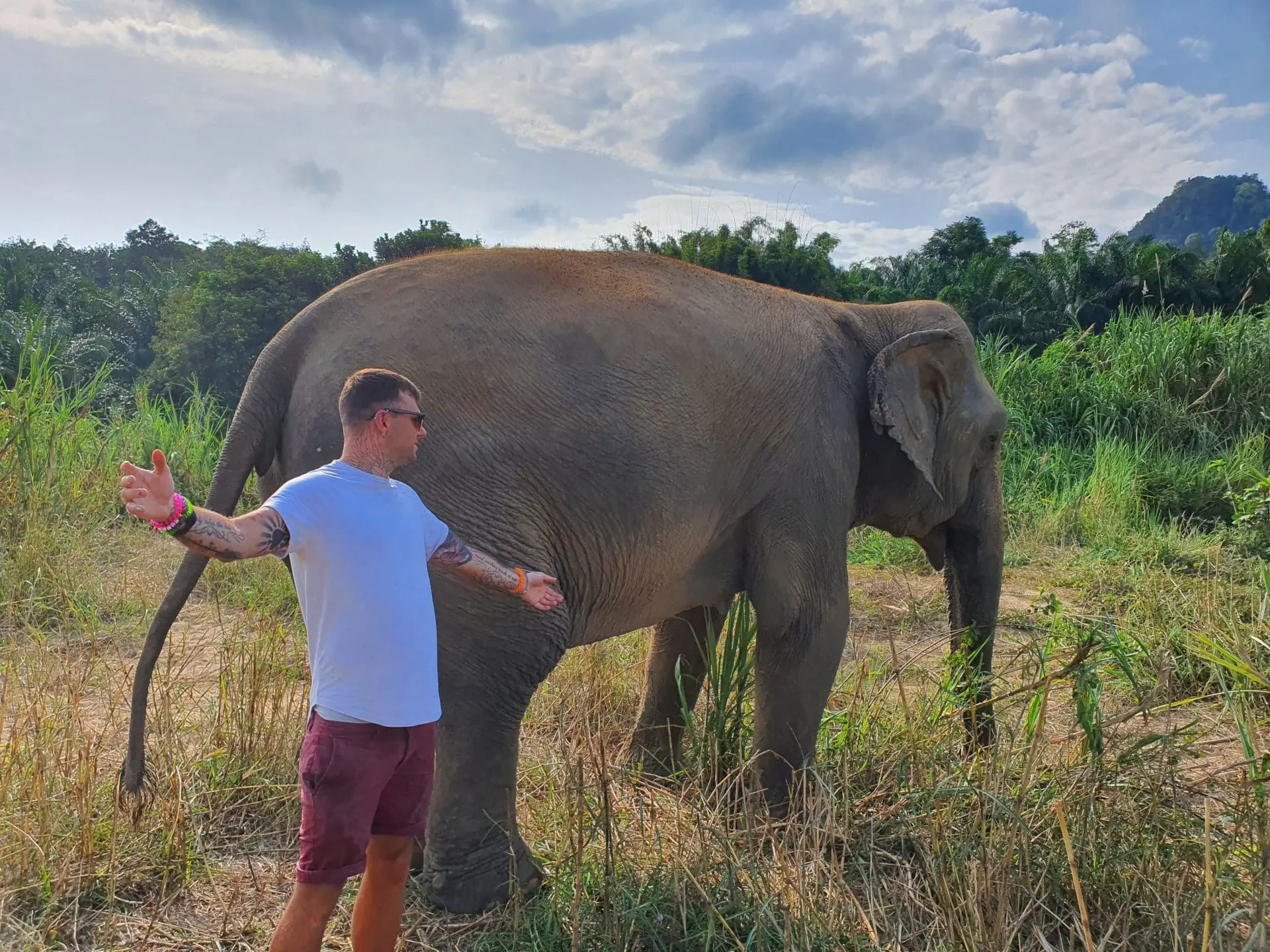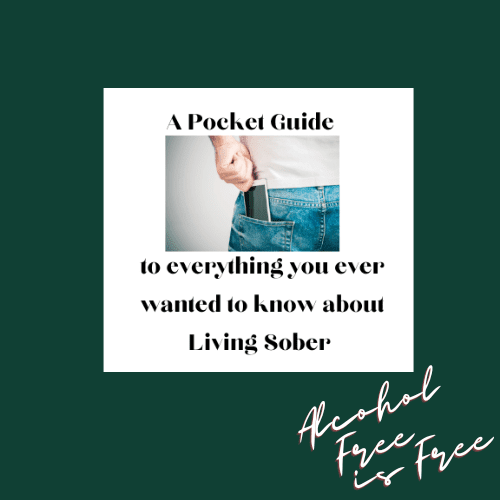Stepping into new places without a drink in hand can feel isolating and strange. Many travellers worry they’ll miss out on the social buzz or lose confidence in moments that usually call for a glass to ease nerves.
But expanding your mind without booze is not only possible; it can open doors to deeper connections and clearer experiences.
They learn that changing the way they engage with the world reshapes their journey. Staying sober sharpens their senses, helps them tune into conversations more fully, and discover joy in places alcohol might have blurred. As one traveller said, “Sobriety is not a limitation, but a new lens to see the world through.”
Personal Mindset Tips for Social Situations While Sober
When surrounded by drinkers, it helps to remind themselves why they chose this path. They focus on listening, asking genuine questions, and finding others who share their pace.
Carrying a small mantra or phrase can steady nerves—something like, “I’m here for the moment, not the bottle.” They also prepare simple answers for curious questions, keeping it light but firm.
This mindset turns awkward pauses into chances for real talk and makes socialising feel less like a challenge and more like an adventure.
For more insight, see this discussion on expanding your mind without booze.
1) Embrace Daily Meditation to Quiet Your Mind and Find Clarity
He found the constant buzz of his thoughts made it hard to stay present, especially without the familiar escape of booze.
Starting daily meditation gave him a way to slow down, even if just for a few minutes. It wasn’t about stopping thoughts but gently noticing them and letting them pass.
At first, sitting still felt strange, like his mind was resisting. But with time, he began to hear the quiet beneath the chaos. That quiet opened space for new ideas and fresh views he hadn’t noticed before.
In social settings, meditation helped him stay calm when he felt the pressure to drink. He learned to breathe through anxiety and focus on the moment instead of rushing to fit in.
One tip he swears by is silently repeating, “This too shall pass,” whenever temptation or awkwardness strikes.
“Don’t believe everything you think,” became his mantra. It reminded him that thoughts aren’t always facts and he could choose how to respond to them. This shift made sobriety feel less like a fight and more like freely choosing a clearer path.
To explore ways to quiet the mind and ease stress, he often turned to guided meditations and mindful breathing found in meditation books and guides.
2) Keep a journal for stream-of-consciousness writing that unearths hidden thoughts and creativity.
They say the mind is like a river—sometimes calm, sometimes wild.
Keeping a journal lets thoughts flow freely, without judgement or pause. When writing like this, hidden ideas and feelings often rise to the surface, unexpected and raw.
A traveller once shared how his notebook became his closest companion on long journeys. Without distractions, he found clarity in the chaos. Scribbling whatever came to mind helped him untangle worries and sparked creativity he didn’t know he had.
In social settings, staying sober can feel awkward at first. Writing helps here too. Before events, jotting down thoughts or intentions calms nerves. It gives a sense of control when the world seems loud and unpredictable.
One useful mindset tip: remember that connection doesn’t come from drinks, but from genuine moments. It’s okay to be quiet or step away to write for a minute. This keeps the mind fresh and present without needing alcohol as a crutch.
As Anaïs Nin said, “We write to taste life twice.” Keeping a journal not only expands the mind, it honours the moment and the real self behind it.
3) Practise yoga to connect body and mind, bringing clarity and calm after a long day.
She found yoga more than just exercise—it was a way to uncoil the tension from long, restless days.
Moving slowly through poses helped her feel the link between body and mind, smoothing out the chaos that often followed social events. It wasn’t about perfection, but presence.
Yoga brought her clarity when the noise of daily life was too loud. The breathing techniques quietened her thoughts, grounding her in the moment. After some sessions, she noticed the busy chatter in her head slow down, making space for calm.
In tricky social situations without alcohol, she leaned on the calm yoga gave her. When conversations felt overwhelming or pressure to drink arose, she reminded herself, “The quieter you become, the more you can hear.” This helped her stay steady and present, even when others pushed a drink her way.
Her biggest tip: carry that calm with you. Even five minutes of mindful breathing or stretching can shift the mood inside. Yoga wasn’t just on the mat—it became a tool to hold her steady as she travelled sober through the world.
Learn more about this mind-body connection in the book Mindfulness yoga : The awakened union of breath, body , and mind.
4) Take up baking as a mindful activity that sharpens focus and soothes the restless mind.
They often find baking a quiet way to steady their thoughts.
Measuring flour, mixing ingredients, and watching dough rise demands attention, pulling the restless mind into the present. This simple act can bring calm, like a pause button on the noise inside.
Baking is tactile and sensory. The smell of bread, the warmth of the oven, and the texture of dough ground them in the moment. These details help sharpen focus without screens or distractions, creating a space where the mind can breathe.
In social settings, staying sober can feel tough, but baking offers a secret strength. When conversations drift towards drinks, they remind themselves: “You don’t need a drink to enjoy the moment.” Baking becomes a metaphor for patience and care, lessons they carry into tougher days.
A powerful mindset tip they share is to breathe deeply when feeling out of place. Mindfulness is not just about stillness but about accepting where you are. Baking taught them that focus and calm come one step at a time, much like every fold of dough.
For those struggling with social pressure, having a “go-to” activity like baking can anchor them. It’s not just about food—it’s about reclaiming control with something simple, mindful, and real.
Learn more about mindful cooking and focus in everyday life here.
5) Explore new hobbies like painting or DIY projects to engage your hands and thoughts simultaneously.
She found that picking up painting after quitting booze wasn’t just about colours on a canvas. It was about quieting the mind and giving restless hands something to do. The focus needed helped ease the social nerves that often came with sobriety in group settings.
He learned that DIY projects offered more than fixing things around the house. They created a new kind of confidence—a reminder that making something with your own hands matters. In moments when social drinks called his name, the scratch of paintbrush or hammer replaced old habits.
When meeting friends without a drink in hand, it’s normal to feel out of sync. A good mindset is to remember what She once heard, “Creativity is the soul’s way of resting.” Holding onto that helped her lean into new hobbies instead of old routines.
Trying something hands-on shifts attention from external pressure to internal growth. It’s not about becoming an artist or craft master overnight; it’s about showing up for yourself. Every finished piece is proof that joy and challenge can live clean and sober.
Explore new hobbies like painting or DIY projects to keep your hands and mind busy is a real step toward expanding without booze. It’s simple, but it works.
Find more on mindful creativity in this book on reinventing yourself.
6) Immerse yourself in nature walks, letting the rhythm of your steps clear mental clutter.
She found early on that nature walks were more than just exercise. When the world gets loud, the simple rhythm of stepping lets thoughts slow down. Each footfall acts like a soft metronome, helping to sweep away mental noise without needing a drink to quiet the mind.
Walking through green spaces, away from busy streets, invites a calm that’s hard to find indoors. She noticed how watching leaves move with the wind or listening to birds made her feel present—grounded in a way alcohol once falsely promised.
Social occasions can still be tricky without booze. Her advice? Find small ways to centre yourself, like stepping outside for a quiet walk or focusing on deep breaths. Carry a simple phrase to remind you why you stay sober, such as, “I’m here for real connection.”
As she often said, “Your mind is a garden; what you water will grow.” Nature helped her water clarity. Her steps, steady and mindful, opened space where clarity and calm could take root.
For more on using nature to clear mental chatter, see mindful nature walks ideas at Google Books.
7) Read diverse books aloud to yourself, embracing different voices and ideas to broaden viewpoints
She found that reading aloud helped her slow down and really listen to different voices. When you hear the words, not just see them, you catch emotions and ideas that might slip past in silent reading.
It’s like inviting a conversation with the author and their culture right into your mind.
He often chose books from writers who came from backgrounds unlike his own. This wasn’t just about learning facts — it was about feeling the world through different eyes.
This helped him shake off old assumptions and see things more clearly, like looking through a new lens.
In social situations, reading these books gave her quiet strength. When conversations turned to tricky topics, she felt ready. She could listen without judgement, hold space for others, and speak up with calm confidence.
A mindset tip for staying steady in social gatherings is remembering this: “You don’t have to join the noise to keep your voice.” Staying sober doesn’t mean being silent. It means choosing how and when to speak, informed by the wider stories you’ve taken in.
This habit of reading aloud became a tool for mental travel, breaking the walls built by habits, and opening doors to deeper understanding — all without needing a drink in hand.
For more about reading diverse stories to widen perspective, see Using book club to engage culturally and linguistically diverse learners in reading , writing, and talking about books.
8) Attend local meetups or discussion groups to spark conversations that challenge your thinking.
They found that stepping into a room full of strangers was hard at first. Without the buzz of alcohol, every word felt sharper, every silence longer.
But soon, they noticed something different—real conversations, those that made them pause and rethink.
Local meetups or discussion groups offered fresh perspectives. Listening to others’ stories and viewpoints challenged their own mindset in ways bars never did.
It wasn’t about proving a point but about learning and growing.
Being sober in social settings meant dealing with awkward moments too. They learned to embrace silence rather than rush to fill it, reminding themselves that “Conversation is food for the soul.” This helped calm nerves and opened space for genuine connection.
When anxiety crept in, they focused on curiosity instead of performance. Asking simple questions like “What made you think that?” shifted attention outward. It turned socialising into a shared journey instead of a test.
Joining these groups became a way to expand the mind without the need for booze. The real risk wasn’t in speaking up but in not showing up at all.
For tips on sparking deep talks, check out this guide on starting meaningful conversations.
9) Learn a new language to stretch your brain and invite fresh cultural perspectives
They found learning a new language changed more than just the words they spoke. It stretched their brain in ways they hadn’t expected.
Suddenly, they saw the world through different eyes — new customs, humour, and ways of thinking opened up.
At first, it was awkward. Social situations felt tougher without the usual comfort of alcohol. But they noticed something else: meeting people sober forced curiosity and genuine connection.
Listening carefully, asking questions, and laughing at mistakes brought real friendships, not just passing moments.
One day, a local said, “Language is the road map of a culture.” That stuck with them. It reminded them that learning a language isn’t just about words, it’s about stepping fully into a new life.
With patience and a little humility, they kept pushing themselves every day.
For anyone nervous about sober social life, they suggest this: focus on curiosity instead of confidence. Be open to making mistakes. Keep reminding yourself, “I’m here to learn, not perform.” This mindset can turn any gathering into a place to grow without needing a drink.
Learning a language is a powerful way to expand your mind and heart, free from the haze of booze. It invites you to truly connect with the world, one simple phrase at a time.
Find more on the power of language and culture in this book about language, culture, and the embodied mind.
10) Dance freely, whether alone or with others, to unlock emotion and find joy beyond alcohol’s lure.
She found that dancing without a drink in hand changed everything. At first, it felt odd—moving without the usual buzz.
But slowly, the rhythm helped her release emotions bottled up inside. It was honest and raw, something booze only masked before.
Dancing alone gave space to explore feelings without judgement. When with others, it built real connections, built on movement not mirth from alcohol.
It became a way to celebrate life sober, a reminder that joy doesn’t need a drink.
In social situations, he learned to breathe through the awkwardness. Instead of reaching for a drink, he focused on the music and the moment. Saying quietly, “I’m here for the connection, not the drink,” kept him grounded.
One saying he carried was, “Dance like no one is watching, but know you’re freeing your soul.” This helped him remember that the real joy is inside, not from the bottle.
Dancing unlocked emotions and joy in ways he never expected. It wasn’t about being perfect, but about being fully present and alive.
For more on using dance to find freedom from drinking, see Healing Expressions: A Dance/Movement and Yoga Therapy Method for Emotional Sobriety.
The Mind Beyond the Bottle
Expanding the mind without alcohol means facing old habits and discomfort with honesty. It involves shifting how we see ourselves and challenges. This openness to change shapes a clearer, fuller experience of life.
Letting Go of Old Stories
Often, the stories people tell themselves keep them stuck. They might think they need a drink to socialise or relax. But these stories are habits, not truths. Letting go means spotting these patterns and questioning them.
He or she might remind themselves: “I can enjoy company without alcohol.” It takes time to build new habits that feel natural. Building a new story means focusing on the real reasons they want change, such as clearer thinking or deeper connections.
Writing down these stories helps, too. Putting words to thoughts makes them less powerful. It’s like unpacking heavy bags to find lightness underneath. This work, though tough, sets the stage for real growth beyond the bottle.
Facing Discomfort Head-On
Discomfort is a big hurdle when quitting drinking. It shows up as awkward silences, anxiety, or feeling out of place. Instead of running from these feelings, embracing them can turn them into lessons.
When discomfort arises, he or she learns to breathe deeply and stay present. Rather than reaching for a drink, they might say, “I’m okay feeling this way.” This shifts the mind from fear to acceptance.
Practising this takes courage but builds resilience. Over time, those uncomfortable moments become less scary and more familiar. It’s a training ground for growth — without needing to dull the senses.
Tips for Social Situations While Sober
- Plan an exit strategy if things get overwhelming.
- Use a simple line like, “I’m taking a break from alcohol right now.”
- Focus on listening more; people appreciate genuine attention.
- Bring your own non-alcoholic drink to feel included.
- Find a buddy who supports your choice.
A powerful quote to carry:
“What feels like the end is often the beginning.”
This mindset helps in tough social moments, keeping the mind open beyond the bottle.
For deeper ideas, see this exploration of mind and value in global ideas on Selling wine without bottles.
Honest Reflections and Real Growth
Growth without relying on alcohol asks for real honesty with oneself. Facing tough feelings and embracing change bit by bit leads to lasting strength and meaningful progress.
Building Resilience Without Numbing Out
She learned that resilience doesn’t mean avoiding pain but sitting with it. When the urge to numb out with booze showed up, she reminded herself that discomfort is part of healing.
Instead of reaching for a drink, she used deep breaths and quiet moments to listen to what underlay her cravings.
She kept a journal where she wrote down her feelings before they overwhelmed her. This practice helped her spot patterns and deal with triggers calmly.
Gradually, those difficult moments felt less scary because she faced them head-on.
She reminded herself: “True strength lies in feeling, not hiding.” That mindset slowly rewired her brain, creating new pathways free from alcohol’s hold. She found she wasn’t fragile; she was becoming stronger.
Celebrating Small Shifts
It wasn’t about giant leaps but noticing tiny wins each day. When she went out socially and stayed sober, she counted those nights as victories. When she greeted a hard day without despair, she acknowledged that too.
Looking for more sober travel inspiration? Find your next adventure on our Homepage.
Small shifts built confidence. She learned to recognise growth in moments like:
- Saying no politely at a party
- Enjoying a coffee with friends
- Facing boredom without reaching for a drink
These wins planted hope and motivation. They showed her change was real and happening slowly but surely.
Mindset Tips for Social Situations
When surrounded by drinkers, she found these steps helped:
- Prepare an exit plan to leave if pressure got too high
- Practice honest but firm answers like, “I’m not drinking tonight”
- Focus on listening and asking questions to shift attention from herself
- Have a non-alcoholic drink in hand—it said “I’m here, sober” without words
She reminded herself, “I don’t need a drink to belong.” That kept her steady.
Facing the world without alcohol isn’t easy, but with honest reflection, real growth happens. It’s in these quiet, sober moments that life opens up.
For more on honest self-reflection and growth without booze, see this book on understanding the alcoholic’s mind.
Frequently Asked Questions
Expanding the mind without alcohol takes small daily changes and honest self-reflection. It means finding natural boosts, reshaping social moments, and building habits that calm and inspire. These approaches help replace old routines with new experiences that truly satisfy.
What alternative beverages can provide a natural lift without alcohol?
Herbal teas, like chamomile or peppermint, calm the mind and offer gentle refreshment. Fresh juices or sparkling water with a squeeze of lemon bring a crisp, uplifting taste without the buzz. Kombucha can add a subtle energy from natural fermentation, keeping things light and alive.
How can one redefine enjoyment at social gatherings without the need for a drink?
Focusing on conversations rather than the glass changes everything.
Sharing stories or hobbies creates connection far deeper than alcohol’s haze.
They might practise a personal mantra like, “I’m here for the people, not the pour,” to steady nerves.
A handful of deep breaths and a sincere smile act as their best social tools.
What strategies can help when experiencing low moods after giving up alcohol?
Journaling thoughts daily becomes a quiet sanctuary in moments of doubt.
Meditation and yoga provide steady routines that ground their emotions.
Listening to music, taking a short walk, or even baking helps redirect the mind from cravings to creative or calming outlets.
In what ways can a person unwind and de-stress without relying on alcoholic drinks?
They often turn to mindfulness through gentle yoga stretches or evening meditation.
Creative hobbies like painting or DIY crafts steady restless hands and focus the mind.
Cooking or baking becomes a sensory ritual, soothing with measured steps and simple ingredients.
What activities can turn an ordinary Friday night into a memorable adventure without booze?
Exploring a new hobby or project brings fresh excitement and pride.
Hosting a game night or inviting a close friend for a walk outdoors turns quiet evenings into shared adventures.
Sometimes, a good book or a new podcast sparks the kind of joy that lasts longer than any drink.
How can one cultivate a fulfilling lifestyle that doesn’t rely on alcohol for entertainment?
They build daily habits that tie mind and body with purpose, like morning meditation or journaling.
Finding flow in hobbies such as painting or DIY tasks creates a steady stream of accomplishment.
The mindset comes from remembering Maya Angelou’s words: “We delight in the beauty of the butterfly, but rarely admit the changes it has gone through to achieve that beauty.” This reminds them that growth comes with patience and effort—no shortcuts needed.

Quit drinking on 23 July 2021 after a two-day bender and swapped bars for border crossings and 12-step meetings. Three sober years, 36 countries, 113 travellers (totally dry), fuelled by street food, jelly babies, and a broken Google Maps app. Wandersober is my journal, my SEO lab, and my mission. Featured in GQ, Mirror, Evening Standard, MarketWatch, and more.







